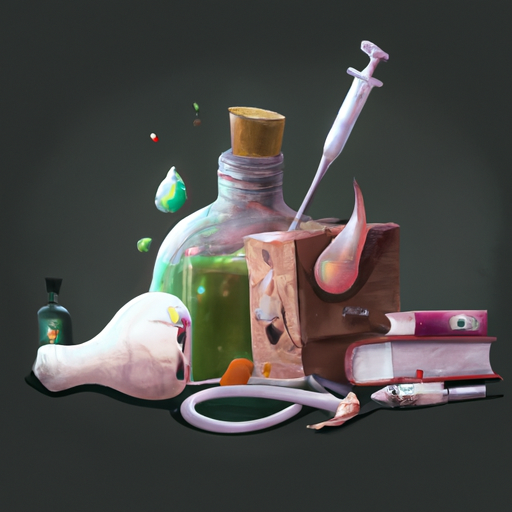Symptoms
Auto-brewery Syndrome, also known as gut fermentation syndrome, is a rare condition related to the digestive system. Symptoms of this condition include feeling drunk without drinking alcohol, abdominal pain, nausea, and vomiting.
- Headache
- Blurred vision
- Lack of coordination
- Slurred speech
- Poor balance and difficulty walking
- Confusion and memory loss
These symptoms can occur suddenly and unexpectedly, even if the person has not consumed any alcohol. Medical studies show that a type of yeast called Saccharomyces cerevisiae is found in the gut of people with auto-brewery syndrome, leading to the production of alcohol from carbohydrates which can cause an intoxicated state. Treatment for auto-brewery syndrome typically involves eliminating sources of carbohydrates from the diet, as well as taking anti-fungal medications to reduce the amount of yeast in the gut.
Gastrointestinal Symptoms
Auto-brewery syndrome (ABS) is a rare and understudied condition in which the body produces ethanol (alcohol) within itself, independent of drinking and fermenting external alcohol. This is caused when gastrointestinal yeast overgrows, fermenting carbohydrates into ethanol, resulting in a person having symptoms similar to being inebriated. Patients with ABS typically experience gastrointestinal symptoms of nausea, bloating, and abdominal pain. Those with more severe cases can experience confusion, slurred speech, and even seizures. These symptoms worsen when carbohydrates are consumed, as the yeasts feed off the sugar and produce more ethanol. As such, an ABS diagnosis requires dietary adjustments to reduce the amount of sugar and carbohydrates in the diet. Reducing sugar and carbohydrates in the diet can help to reduce the severity of symptoms and reduce the production of ethanol in the body. It is also essential for people with auto-brewery syndrome to receive antifungal medication to help reduce the amount of yeast in their system and to prevent a recurrence of the symptoms.
Mental Symptoms
Auto-brewery syndrome (ABS) is a rare medical condition that can cause mental symptoms. It occurs when the body’s digestive system produces alcohol from sugary and starchy foods. The by-product of this process is what causes the mental symptoms. Signs of ABS can include depression, anxiety, confusion, impaired cognition, and even psychosis. Without proper medical diagnosis and treatment, these symptoms can last for weeks or even months. ABS is a perplexing condition and it is important to understand that the mental symptoms are not voluntary and are beyond the person’s control. A comprehensive treatment program should be put in place to manage these symptoms and to help the person achieve the highest level of functioning possible.
Diagnosis
Auto-brewery syndrome is a rare condition that is not commonly diagnosed. It is caused by an overgrowth of yeast in the gut, which results in the body naturally creating alcohol as a byproduct. In order to diagnose the condition, doctors will typically use a combination of medical history, physical examination and laboratory tests. Medical history will usually involve questions regarding the patient’s dietary habits, alcohol intake and symptoms. The physical examination may involve a check of the stomach to look for signs of swelling or overgrowth of yeast. Laboratory tests may include a urine alcohol test, blood tests for yeast and testing for other substances that can be produced by yeasts. If the diagnosis is confirmed, a treatment plan must be developed to control the overgrowth of yeast and reduce the production of alcohol. In severe cases, medications may be required to control symptoms.
Treatment
Auto-Brewery Syndrome is a rare and often misdiagnosed condition in which the body naturally produces alcohol. An estimated 500 cases have been reported since the first report in the early 1900s. Fortunately, this condition is treatable. Treatment begins with balancing the internal yeast balance. Often times a doctor will prescribe anti-fungal medications and probiotics to help restore this balance. Additionally, a diet low in carbohydrates and sugars is recommended to keep yeast growth in check. Alcohol use should be stopped and avoided to prevent further disruption of the inner balance. Ultimately, the most important part of treating Auto-Brewery Syndrome is getting the diagnosis right. With the right diagnosis and treatment plan, this potentially dangerous condition can be successfully managed.


No Comments